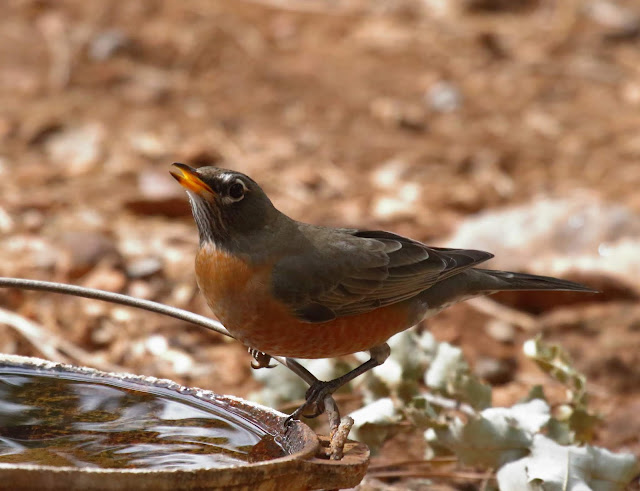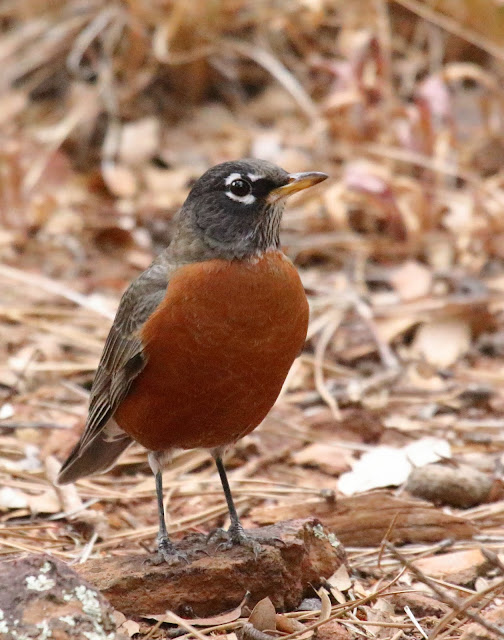Without looking, describe the field marks of the head of an American Robin. This species is a common backyard bird throughout most of North America. But how well do you really know it?
What if a Rufous-backed Robin or Clay-colored Thrush showed up from Mexico? Would you immediately recognize an Asian stray such as Eyebrowed Thrush or Dusky Thrush? Would you pass off a European Redwing as just a juvenile American Robin?
Do you remember the shape of the eye ring? Bill color? Throat? Back color? Under tail coverts?
This is a reminder to really study the plumage, calls, and behaviors of common backyard birds. Then, when something rare shows up, you'll be prepared to recognize it and describe it so others can understand what you've seen.
What did you see?
An American Robin.
No, that's what you concluded. What did you see?
In San Diego County American Robins are patchily distributed. According to the San Diego Bird Atlas this bird started breeding regularly only in the 1940s. They breed in three habitats: mountains, orchards (avocado and citrus), and urban parks with shade trees and lawns (college campuses, etc.). They winter more widely, but are scarce some winters, abundant others.









We had a large round of Robins in our University City, San Diego, back yard this morning
ReplyDeleteJust spotted one, for the first time ever in neighborhood tree. Thrilled. We live across from Balboa Park on 6th but in my 34 years in this apartment never saw one in that tree or anywhere. 1/27/2023
ReplyDeleteI live in Eastlake in Chula Vista and have at least 20 in my backyard right now! Haven’t seen these in years.
DeleteI've just had two in my backyard, the first time ever in 20 years here in San Diego. So excited!
ReplyDeleteWe have hundreds in our yard right now. Drinking water out of the bird bath, and three water bowels.
ReplyDeleteI have lived in San Diego my whole life. I'm 60 Never seen so many this year in my front bird bath and a view blue birds. So happy to see them and watch them drink water.
ReplyDelete